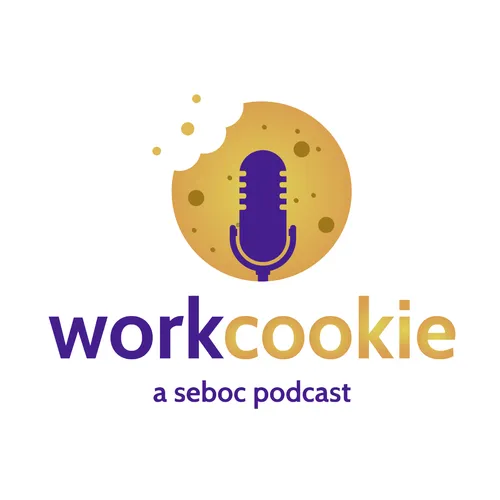Ep. 230 - The Shadow of Self-Doubt: Strategies to Help Employees Overcome Imposter Syndrome
- Author
- seboc.com - The Society of Evidence-Based Organizational Consulting
- Published
- Mon 18 Nov 2024
- Episode Link
- https://seboc.podbean.com/e/ep-230-the-shadow-of-self-doubt-strategies-to-help-employees-overcome-imposter-syndrome/
We examined the psychology of imposter syndrome (the imposter phenomenon) and explored strategies to help overcome it to create more confident employees.
In this Episode: Dr. Heather Morton, Tom Bradshaw, Lee Crowson, LindaAnn Rogers, Nic Krueger, Emi Barresi, Dr. Martha Grajdek, Rich Cruz, Cam Dunson, Dr. Amanda Shelton, Alexander Abney-King, Dr. Matt Lampe
Visit us https://www.seboc.com/
Follow us on LinkedIn: https://bit.ly/sebocLI
Join an open-mic event: https://www.seboc.com/events
References:
Arciniega, L. M., Servitje, A., & Woehr, D. J. (2021). Impacting the bottom line: Exploring the effect of a self‐efficacy oriented training intervention on unit‐level sales growth. Human Resource Development Quarterly, 32(4), 559–576. https://doi-org.libauth.purdueglobal.edu/10.1002/hrdq.21433
Carey, M. & Forsyth, A. (2009). Teaching tip sheet: Self-efficacy. American Psychological Association (APA). https://www.apa.org/pi/aids/resources/education/self-efficacy
Chrousos, G. P., & Mentis, A. F. A. (2020). Imposter syndrome threatens diversity. Science, 367(6479), 749-750.
Gallagher, M.W. (2012). Encyclopedia of Human Behavior (Second Edition). Self-efficacy. Via ScienceDirect: https://www.sciencedirect.com/topics/psychology/self-efficacy-theory
Locke, E. A., & Latham, G. P. (2019). The development of goal setting theory: A half-century retrospective. Motivation Science, 5(2), 93–105. https://doi-org.libauth.purdueglobal.edu/10.1037/mot0000127
Sheykhangafshe, F. B., Nouri, E., Niri, V. S., Choubtashani, M., & Farahani, H. (2024). The efficacy of Cognitive Behavioral Therapy on mental health, self-esteem and emotion regulation of medical students with imposter syndrome. Educational Research in Medical Sciences, 13(1).
Recommended scales:
Eysenck Self-esteem Scale (ESES)
Imposter Syndrome Scale
